| | Bob Griebel and Sandy Easterbrook, along with their niece Tess Griebel run Kettle Crossing Farm and SweetMeadow Farmstead Cheese near Sundre, Alberta. Their beautiful quarter section of land has rolling pasture, forested valleys and is crisscrossed by the Community Creek and Fallentimber River.
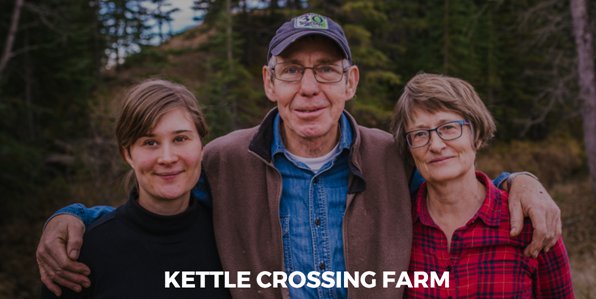
Bob, Sandy, and Tess have a varied market table which includes free range chicken eggs, free range duck eggs, baking, cheese, vegetables, honey and knitted sheep’s wool socks. You can find their products at Bergen Farmers’ Market, Sundre Farmers’ Market, and through on farm sales (no cheese through farm gate sales). You can follow along with SweetMeadow Farmstead Cheese on Instagram.
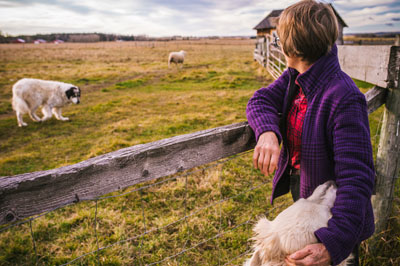
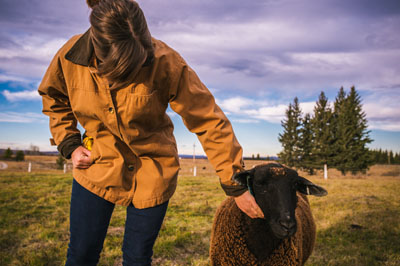
How Kettle Crossing Farm began:
Bob and Sandy are no strangers to agriculture. Bob grew up on a farm in eastern Alberta and, while Sandy grew up in Montreal, her mother (raised on the prairies) always kept a large garden. Their professional lives, however, brought them to Saskatoon where Bob worked as a neurosurgeon and Sandy as an art conservator. Eight years ago they retired with the intention of farming and found land in Sundre that fit their ideals perfectly. They built a straw bale house for themselves as well as one for their poultry, and Kettle Crossing Farm was born.
Six years ago, Bob and Sandy’s niece Tess spent a season working on the farm for Bob and Sandy and she became interested in cheese making. She has since apprenticed with Sally Fallon and has returned to Kettle Crossing Farm to focus on building up their cheese offering under the SweetMeadow Farmstead Cheese brand.
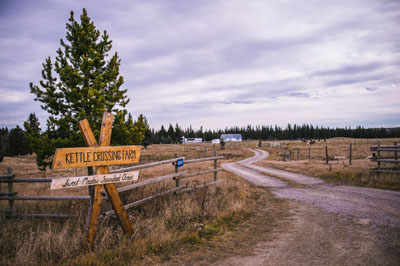
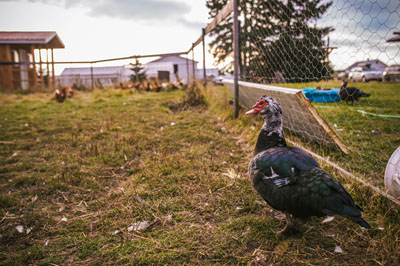
How they’re doing it differently:
Rather than seeing themselves as land-owners, Bob and Sandy see themselves as land stewards and understand both the moral responsibility and the privilege it is to take care of the land in the best possible way. Their decision to go into agriculture grew out of a mistrust of industrial food and a desire to raise their own animals while sharing their bounty with others and educating their community. They believe that consumers should have the choice to buy the most natural food possible and that consumers should take responsibility for what they choose to eat.
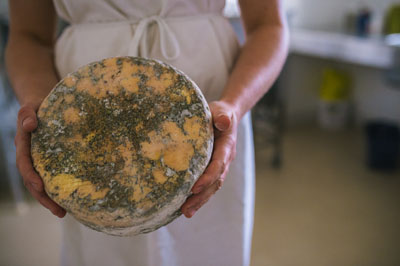

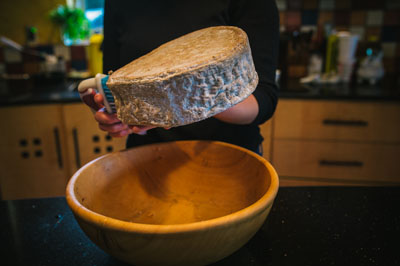
Kettle Crossing Farm and SweetMeadow Farmstead Cheese products:
While their market table offering is very diverse, Bob, Sandy, and Tess are part of a small group of cheese-makers in the province producing small batch artisanal cheese. They make cheese out of both sheep and cow’s milk, and even some blends of the two. Their most popular product is their sheep feta. While many people are not as familiar with sheep cheese, Tess has noticed that once people try it, they are hooked. Sheep milk has a higher fat content and so can create very creamy, flavourful cheese.
The variety and style of cheeses available reflect the changes in their sheep and cow’s milk through the season. The fat content of the milk varies from 4% in the spring to almost 9% in the fall. This means that their cheese products are never exactly the same because you can taste the seasonality through the cheese. The cheese really is a reflection of the animals, land, and climate in which they are working. Their cheese making follows a more European style where makers will often even label their cheeses by the season during which they’re produced.
The key factor for cheese making is patience. From ripening to aging, each process is about waiting for the right time to work with a cheese that will make it taste best. Any hard cheese must be aged. SweetMeadow’s cheeses are aged for at least 60 days and often as many as 6 months. They let the cheese age naturally rather than waxing it, despite the fact that it’s significantly more work to maintain the un-waxed cheeses.
In keeping with the practice of many great cheese makers, Sandy names the cheeses they create after their geographical roots. At their market stall you’ll see cheeses like "Community Creek Cheddar" or "Bergen Blue". This resonates not only with the community, but also with the product itself - as the cheese is a reflection of the animals and land from which it was created.
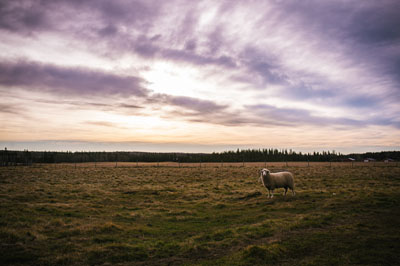
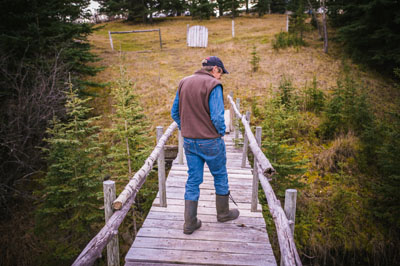
Their relationship with their customers and the community:
Bob, Sandy, and Tess are passionate about engaging their community and customers in ways that introduce them to thinking about food differently. From hosting school groups to offering cheese making lessons, they want to give their community the means to make food interesting and fun while at the same time providing high quality, nutrient dense products.
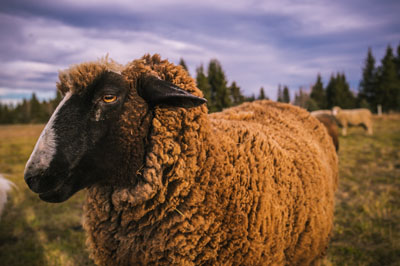
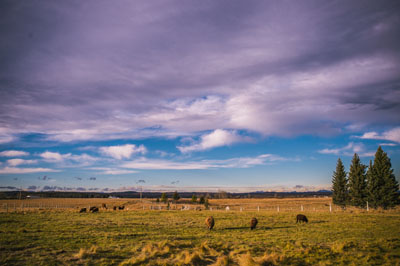
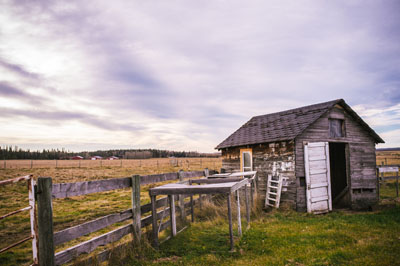
The future of Kettle Crossing Farm:
While they’ll continue to offer high quality honey, vegetables, and eggs, Bob, Sandy and Tess are eager to see the growth of their SweetMeadow Farmstead Cheese line. They’re hoping to increase production next year by adding a few animals in order to give them the option of making more varieties of cheese. Currently they milk seven ewes and two cows; next year they hope to milk twelve ewes.
They would like to grow slowly, however, to ensure that they hit the right balance of increasing production enough to make a living from their products but remaining small enough that they can control all aspects of their product and not compromise the quality that their customers have come to expect.
“We’re trying our best to be responsible caretakers of the land and the soil.” – Sandy
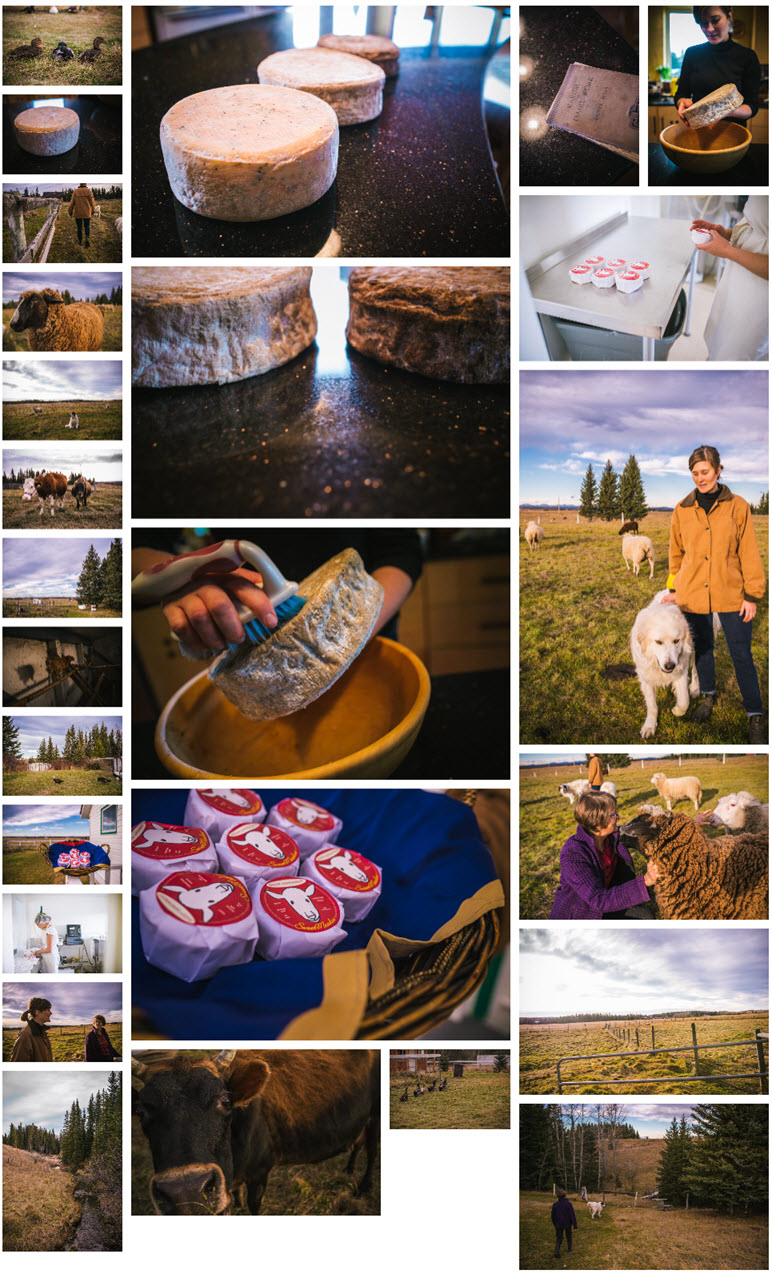

|
|